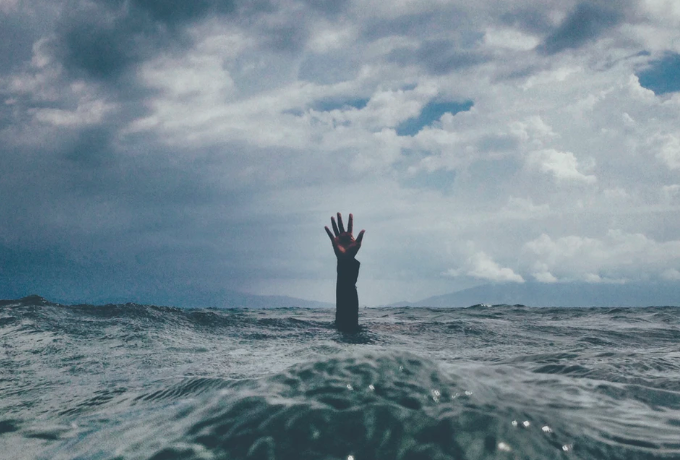Inspiration drives us; it’s the “life force” that keeps us moving.
Not only does it help us power through our mundane daily tasks, but it also plays a huge role in our creative endeavours and in our work more generally. When inspiration strikes, it’s pure magic; when we can’t find it, we feel dead inside.
Inspiration is like food: you can only go so long without it.
Whenever I ask others about what inspires them, I find the themes are quite similar. There’s usually some variation of a story that centers around adversity and the ability to triumph and prevail.
Many novels and films revolve around this theme. The main character emerges on the other side of what previously seemed like impossible circumstances to navigate. They stand victorious, like a beacon of light, a hero, showing the rest of us what’s truly possible if we face our fears and refuse to give up when things get tough.
This timeless story is known as the “hero’s journey,” and it’s a narrative every one of us has encountered—even if we’ve never heard of it.
Joseph Campbell wrote about the “hero’s journey” in his book The Hero with a Thousand Faces and since then, it’s become a popular way of structuring stories.
The basic premise of the narrative is that there’s a regular person in the regular world who gets called to adventure through some major conflict. The hero either answers the call or refuses. If he or she answers, they are likely to be met with many challenges before he or she finally overcomes the challenge and emerges victorious.
I love this theme too, and like anyone, I find it really inspiring. But for me, the part where the hero slays their demons and emerges victorious is actually not what inspires me the most.
While many people look for the happy ending of the hero’s journey, I look to the hero when they’re in the trenches, in the depths of their despair.
I find hope in those moments where a human being is at their most vulnerable place. Most of us, whether we know it or not, acquire our deepest learning from our darkest hour.
My connection to this place traces back to my childhood, likely in my role as a witness as I watched both my brother and father struggle through mental illness.
My father also struggled with alcoholism; it was his form of self-medicating his pain, but it ultimately led to his demise. My brother, who has an intellectual disability, has had to fight every day of his life just to be acknowledged by his peers and to participate in the world like any other person—all the while suffering from bullying and abuse from peers and service providers.
Then, as I watched my brother and father struggle, their darkest hours became my own. Suddenly, my hero’s journey began as I carried the weight of their turmoil. I was never asked to bear this burden; it was just the way things went.
I somehow knew neither my father nor my brother would ever prevail beyond their struggles. Something in my heart told me there would be no happy ending to either of their hero’s journey. So, my greatest wish was for them to find some solace or peace in their lives.
My next greatest wish was that I could rise above the depths of my own despair as I witnessed their struggle to find a way out of theirs.
Somewhere in there, I began to understand the importance of the darkest hour. Not only did it feel real to me, I knew that it was the place of ultimate learning and grace. While others want to get over the hard part and move on to the triumph, I’m still sitting there with the hero in the mud.
I want to know how they feel during their worst moments. I want a window into their self-talk, to know what they say to themselves as they struggle to pull themselves up out of their dire circumstances. More than this, though, I want to know how the hero manages to find a bit of peace and acceptance once it becomes clear they actually might not make it “out the other side.”
After all, the truth is that not everyone triumphs over adversity and that truth holds as much beauty as does the one where the hero succeeds.
There’s much to learn from the hero’s journey, both when they do and when they don’t make it through hardship.
Of course, I want the hero to prevail. I wish my dad were here to experience all that life has to offer. I wish my brother didn’t have to suffer the way he does. But they’ve both inspired me because they taught me that life isn’t always about triumph.
Sometimes the act of getting through the day is inspiring enough. They both taught me a valuable lesson in how we can learn to accept the things we can’t change nor make better.
While others stop reading stories that don’t have a happy ending, I stay. Those stories are real because the depths of our darkness is where the magic lies. It’s definitely not the shiny and pretty kind of magic though, but it’s the moment where most of us learn our biggest lessons.
If we turn away from stories that neither foreshadow nor deliver happy endings, we might be turning a blind eye to a massive part of what it means to be human. I’m not suggesting we should spend every waking moment in the dark places; that wouldn’t be good self-care. However, to never visits those depths is something that just isn’t real to me.
I want to read stories that come from the trenches. I want to know what it’s like to live in such depths and how it feels to cope with such hardship. These are the kinds of insights and experiences I publish in my journal.
These moments connect, inspire, and show us how to keep going in life, even when it doesn’t look like we’ll reach the coveted peak of our journey—and that’s what makes them worth celebrating.
~
 Share on bsky
Share on bsky






Read 17 comments and reply